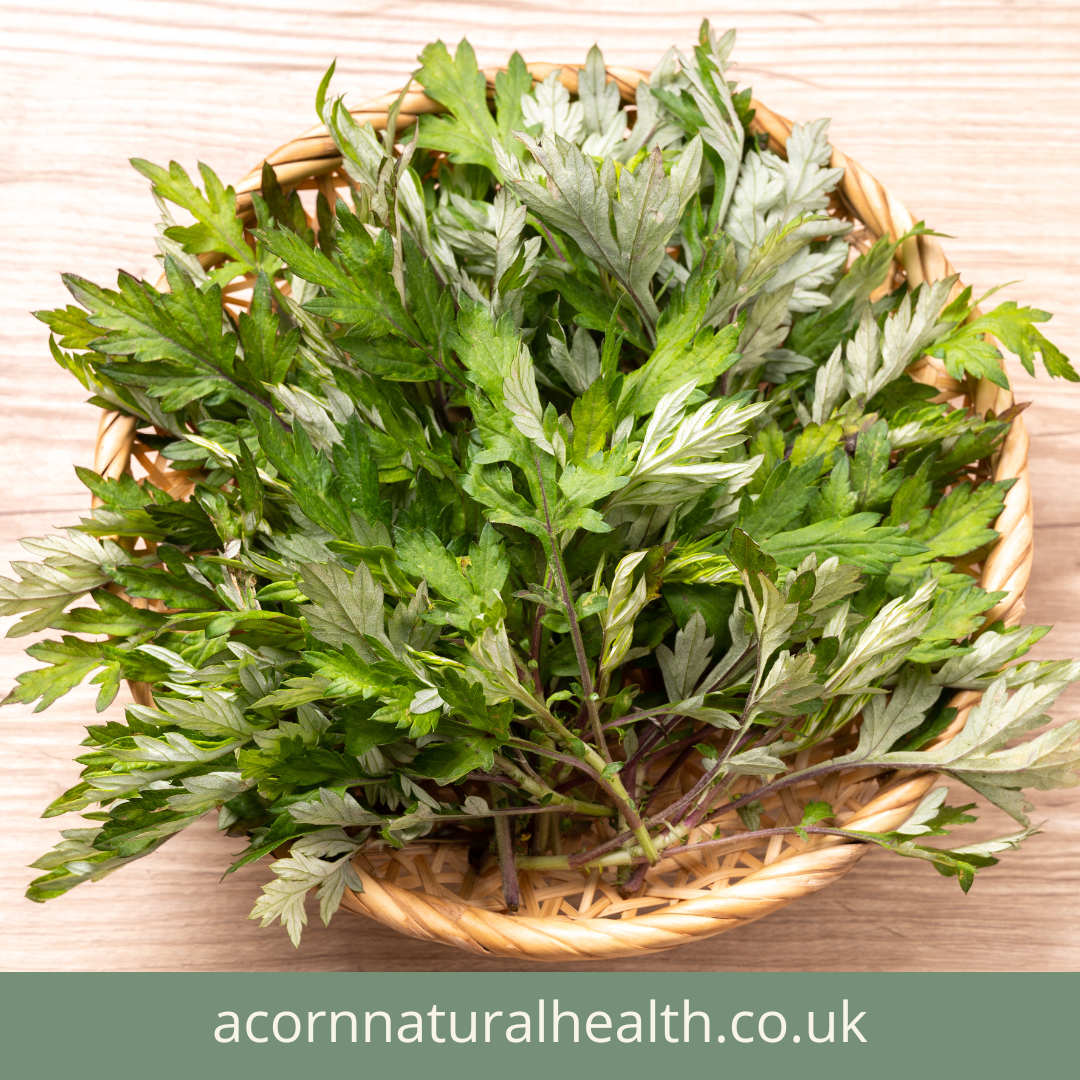Mugwort, scientifically known as Artemisia vulgaris, is a fascinating herb with a rich history and a variety of benefits. Whether you’re interested in herbal remedies or just curious about traditional uses, mugwort has something to offer. Let’s explore this versatile herb, its historical background, and how to use it safely.

What Does Mugwort Look Like? 🌱
Mugwort is a perennial herb that can grow up to 6 feet tall. It has feathery, deeply lobed leaves that are green on top and silvery-white underneath, giving the plant a distinctive appearance. The plant produces small, inconspicuous yellow or reddish-brown flowers in late summer. The aroma of mugwort is strong and aromatic, often described as earthy and slightly bitter.
A Brief History of Mugwort 🌍
Traditional Chinese Medicine (TCM): In TCM, mugwort has been used for centuries for its warming and tonifying properties. Known as “Ai Ye,” it’s commonly employed in moxibustion—a technique where mugwort is burned near acupuncture points to enhance healing. It’s believed to help with digestive issues, menstrual cramps, and general energy balance.
Ayurveda: In Ayurvedic medicine, mugwort is recognized for its digestive and respiratory benefits. Often used as a part of formulations to promote healthy digestion and respiratory function, it’s valued for its warming qualities and ability to balance the body’s doshas (energetic forces).
Western Herbalism: In Western herbal practices, mugwort has been utilized for its various therapeutic properties. Historically, it was used to treat digestive problems, stimulate appetite, and relieve menstrual discomfort. Its use in folklore often involves dream enhancement and protection against evil spirits. 🌙
Where to Find Mugwort 🌿
Mugwort can be found growing wild in various parts of the world, including North America, Europe, and Asia. It thrives in well-drained soil and often appears in fields, roadsides, and disturbed areas. You can also purchase dried mugwort from herbal shops or online stores.
Which Parts Are Used? 🌾
The most commonly used parts of mugwort are the leaves and stems. These parts are harvested and dried for use in teas, tinctures, and poultices. The leaves contain the active compounds that contribute to its therapeutic effects.
How to Use Mugwort 🌿
Mugwort can be used in several ways:
- Teas: Infuse dried mugwort leaves to make a tea. This is a common way to harness its digestive and calming effects. However, mugwort has a strong, somewhat bitter flavour, so you might want to blend it with other herbs for a milder taste.
- Tinctures: Mugwort tinctures are a concentrated liquid form of the herb. They can be taken in small doses to support digestion and other health concerns.
- Poultices: Apply a poultice made from crushed mugwort leaves to areas of discomfort. This traditional method is used for its soothing and anti-inflammatory properties.
- Aromatherapy: Mugwort essential oil can be used in aromatherapy for relaxation and to enhance dream recall.
Precautions and Safety ⚠️
While mugwort offers many benefits, it’s important to use it with caution:
- Pregnancy: Avoid using mugwort during pregnancy, as it can stimulate uterine contractions and potentially lead to complications.
- Allergies: Individuals with allergies to plants in the Asteraceae family (e.g., ragweed, daisies) may also react to mugwort.
- Consultation: Always consult with a healthcare provider before starting any new herbal treatment, especially if you have underlying health conditions or are taking other medications.
Stay curious and healthy,
The Acorn Team 🌟




